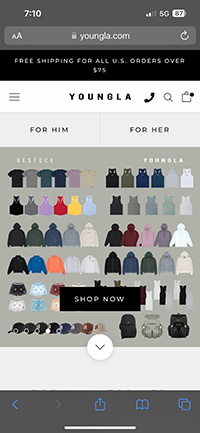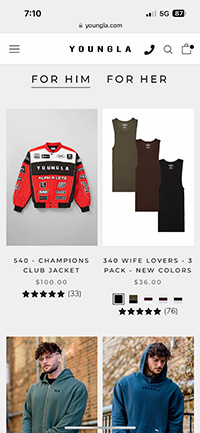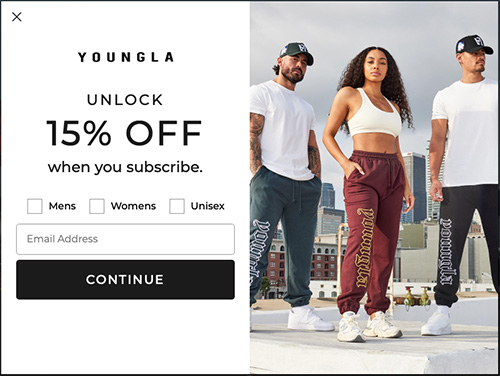Functionality
Understanding the Website:
- Website purpose and content clarity can vary.
- The website should communicate its primary focus and the actions users can take.
- Landing pages should provide clear information about the brand and its offerings.
Website Functionality and Usability:
- Easy access to key functions such as navigation, search, and shopping.
- Intuitive layout and user-friendly interface are desirable.
- Usability can vary based on design and navigation choices.
Visual Design:
- The design should be visually appealing and encourage exploration.
- A clear visual hierarchy helps users focus on important elements.
- A cluttered and visually busy design may deter users.
Navigation and Links:
- Clear, well-labeled links enhance user experience.
- A logical page hierarchy and well-organized structure are important.
- The menu and navigation system should be easy to use.
Text and Graphics:
- Legible fonts and good contrast contribute to text readability.
- High-quality images and graphics can enhance the user experience.
- Text and images should effectively convey information.
Search and Site Map:
- Search and site map features can be valuable for finding specific content.
- Their accessibility and usefulness vary by design and implementation.
Load Times:
- Reasonable load times are crucial for a positive user experience.
- Slow loading can frustrate users and lead to high bounce rates.
Contact and Communication:
- A way to contact or inquire with the website owner is important for user engagement.
- Contact information should be easy to find, typically in a "Contact Us" section.
Mobile Friendliness:
- A responsive design that adapts to various devices is essential.
- Mobile-friendliness ensures that the website looks and functions well on smartphones and tablets.
Social Media Integration:
- Social media integration can be beneficial for connecting with users.
- Links or buttons to social media platforms should be clearly visible and accessible on the site.


